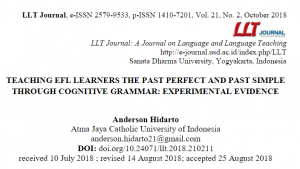Suggestopedia and Language: Variations on a Theme. Studies suggest that Suggestopedia and its adaptations alleviate stress and improve focusing and memorization. This text examines the methods for unconscious assimilation, in particular Suggestopedia, its variants, its adaptations, and its background elements.
ESL Teaching Books – Intro to Suggestopedia
Intro to Suggestopedia: Pocket Therapist’s Guide paperback. Suggestopedia is a learning / teaching technique based on Dr. Lozanov’s very early 1965 studies, long before what would later become the legacy, career and life’s work spent mentoring to students and teachers alike across the world, alongside his partner and wife, Dr. Evelina Gateva. Their combined efforts on the theory and practice of suggestion, would go on to trigger an accelerated learning movement in the West while imitators and usurpers tried to make a name for themselves off of Dr. Lozanov’s and Dr. Gateva hard work.
ESL Teaching Books – Memory, Meaning, & Method
Memory, Meaning, & Method: Some Psychological Perspectives on Language Learning (Teaching Methods Series). This thoroughly revised edition updates and restates Earl Stevick’s classic account of what occurs in the learning and teaching of languages. It includes insights into memory as it relates to language learning and presents language learning as a “total human experience”. This text also focused on a balanced presentation of experimental and personal insights and is appropriate for methods courses. In the section “ESL Teaching books” this is a key book.
ESL Teaching Books – Focus on Content-Based Language Teaching
Focus on Content-Based Language Teaching – Oxford Key Concepts for the Language Classroom. Examines the challenges of learning both language and content in the same class, and reviews classroom-based research on instructional practices that can meet those challenges in primary and secondary schools. In the section “ESL Teaching books” this is a key book.
ESL Teaching Books – Learning Together and Alone
Learning Together and Alone: Cooperative, Competitive, and Individualistic Learning. The authors integrate cooperative learning with competitive and individualistic learning by providing guidelines for managing critical issues such as teaching social skills, assessing competencies and involvement, and resolving conflict among group members. Each type of learning is clearly defined; the advantages and disadvantages of each are covered; and the research is analyzed to illuminate the conditions under which each should be used.Pre-service and in-service teachers with an interest in cooperative learning and teaching methods. In the section “ESL Teaching books” this is a key book.
ESL Teaching Books – Cooperation and Helping Behavior
Cooperation and Helping Behavior: Theories and Research deals with theory and research with respect to positive forms of social behavior, with emphasis on cooperation and helping behavior. Topics covered include social values and rules of fairness; cognitive processes underlying cooperation; the effects of intergroup competition and cooperation on intragroup and intergroup relationships; and altruism and the problem of collective action. In the section “ESL Teaching books” this is a good book.
ESL Teaching Books – Head-Driven Phrase Structure Grammar
Head-Driven Phrase Structure Grammar (Studies in Contemporary Linguistics). This book presents the most complete exposition of the theory of head-driven phrase structure grammar (HPSG), introduced in the authors’ Information-Based Syntax and Semantics . HPSG provides an integration of key ideas from the various disciplines of cognitive science, drawing on results from diverse approaches to syntactic theory, situation semantics, data type theory, and knowledge representation. The result is a conception of grammar as a set of declarative and order-independent constraints, a conception well suited to modeling human language processing. This self-contained volume demonstrates the applicability of the HPSG approach to a wide range of empirical problems, including a number which have occupied center-stage within syntactic theory for well over twenty years: the control of “understood” subjects, long-distance dependencies conventionally treated in terms of wh-movement, and syntactic constraints on the relationship between various kinds of pronouns and their antecedents. The authors make clear how their approach compares with and improves upon approaches undertaken in other frameworks, including in particular the government-binding theory of Noam Chomsky. In the section “ESL Teaching books” this is an okay book.
ESL Teaching Books – Stochastic Coalgebraic Logic
Stochastic Coalgebraic Logic (Monographs in Theoretical Computer Science. An EATCS Series). Combining coalgebraic reasoning, stochastic systems and logic, this volume presents the principles of coalgebraic logic from a categorical perspective. Modal logics are also discussed, including probabilistic interpretations and an analysis of Kripke models. In the section “ESL Teaching books” this is an interesting book.
Being an Online ESL Teacher: What I Love!
I have done many things in my life but few have been as rewarding as being an online ESL teacher. Watching my students blossom to the point where they can carry on entire conversations in English is something special.
I was raised in China with an American mother and a Canadian father and grew up speaking both languages fluently. When we moved back to Canada I always made friends with the new Chinese students, partly because I knew I was the only one who would be able to really carry on a quality conversation with them. That is when I first started helping people learn English beyond a few words here and there. I loved it. At that stage I had no idea I would end up being an online ESL teacher.
Learn more about this topic by reading on Off2Class.
Teaching EFL Learners the Past Perfect and Past Simple Through Cognitive Grammar
PDF #167 – Teaching EFL Learners the Past Perfect and Past Simple Through Cognitive Grammar

Cognitive Grammar (CG) is a relatively new approach to linguistics that is becoming more mainstream in recent years due to its comprehensive description and meaningful elaboration of grammar. CG proponents have been proposing this approach to L2 grammar instruction instead of a more traditional approach that relies heavily on rules.

